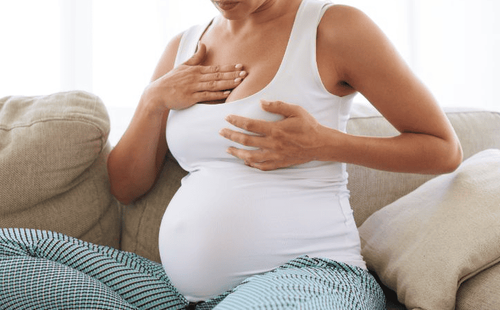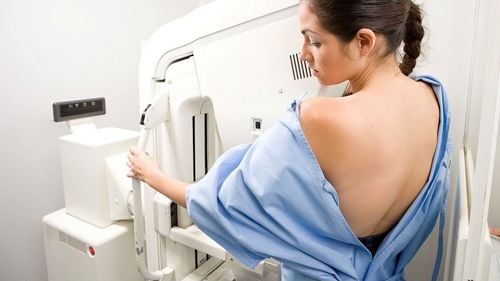This is an automatically translated article.
Article written by Dr. Hoang Quoc Chinh - Vinmec High Technology Center
A factor that increases a person's risk of breast cancer is anything that increases a person's chance of getting breast cancer. However, having risk factors does not mean that the person will definitely get cancer. Risk factors include modifiable and non-modifiable factors. This article provides an overview of the risk factors for breast cancer that we cannot change.
1. Being a girl
This is a major risk factor for breast cancer because the rate of breast cancer in women is hundreds of times higher than in men.
2. Aging
As age increases, the risk of breast cancer increases. The majority of breast cancer patients are detected at age 55 or older.
Trắc nghiệm: Những lầm tưởng và sự thật về ung thư vú
Ung thư vú có tỷ lệ tử vong cao nhất ở nữ giới khiến họ rất lo sợ bản thân mắc phải căn bệnh này. Tuy nhiên, không ít chị em có những hiểu biết thái quá về ung thư vú. Thử sức cùng bài trắc nghiệm sau sẽ giúp bạn loại bỏ được những nghi ngờ không đúng về căn bệnh này.
Bài dịch từ: webmd.com
3. Born into a family with a history of breast cancer
Approximately 15% of breast cancer patients have a family history of breast cancer. The risk of breast cancer for a woman with a mother, sister, or daughter is more than twice that of someone with no family history. This risk will be 3 times higher if there are two people in the family with breast cancer. The risk for women with a father, brother, or brother in the family is also higher than in the general population.
4. Breast cancer patients
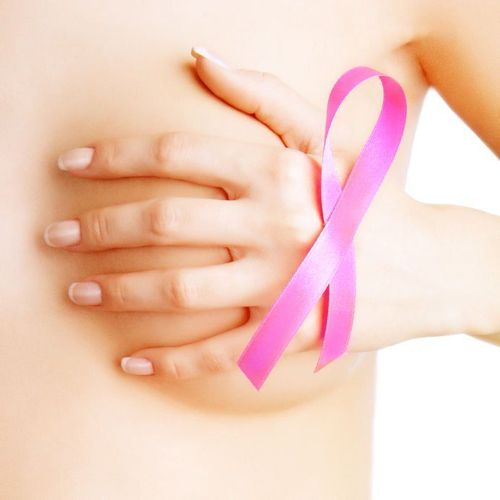
Patients with cancer in one breast also have a higher risk of developing breast cancer in the other breast or in another part of the same breast than the general population.
5. Race
Asian, Hispanic, and Indian women have a lower risk of breast cancer than white and African Americans.
6. Height
Many studies have shown that women who are taller than average height have a higher risk of breast cancer than those who are shorter than average height.
7. Tissue density
Women with denser than average density of glandular and fibrous tissue have about twice the risk of developing breast cancer than women with low density.
8. Benign tumor
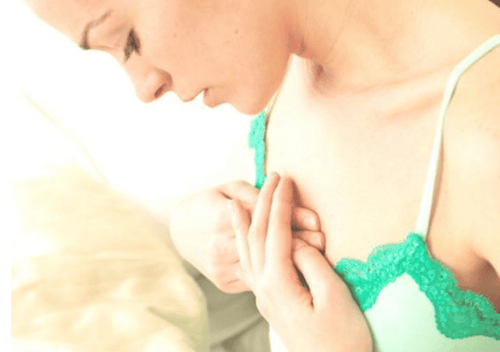
Women diagnosed with benign breast tumors also have a higher risk of breast cancer than the general population.
9. Early Menstrual Cycle
Women who start their menstrual cycle before the age of 12 also have an increased risk of breast cancer.
10. Late end of menstrual cycle
Women who stop menstruating at age 55 and beyond also have an increased risk of breast cancer.11. Genetic Mutation
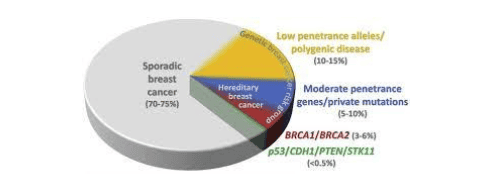
Inherited mutations in genes that increase the risk of breast cancer. About 10% of breast cancer patients are thought to have a genetic cause, meaning that their breast cancer is caused by a genetic mutation that the patient inherited from a parent, or in the family. zygote formation process.
Mutations in the BRCA1 and BRCA2 genes are the most common cause of hereditary breast cancer. The normal function of these two genes is to repair the damage caused by DNA damage. Mutations in these two genes lose or reduce their DNA repair function, leading to the accumulation of damage in cells. When cells contain a large enough amount of damaged DNA, they can become cancerous cells. On average, a person born with a faulty copy of the BRCA1 or BRCA2 gene is 5-7 times more likely to develop breast cancer than the general population (until they are 80 years old). As more people in the family develop breast cancer, the odds increase. Women who carry a genetic mutation in the BRCA1 or BRCA2 genes are more likely to develop breast cancer at a younger age than the average age for breast cancer patients, often have both breasts, and are at increased risk for ovarian and one breast cancer. several other types of cancer. Men who carry the genetic mutation also have an increased risk of breast cancer, prostate cancer, and some other cancers. Mutations in other genes such as ATM, TP53, CHEK2, PTEN, CDH1, STK11, and PALB2 also increase the risk of breast cancer. However, the degree of increased risk of hereditary breast cancer of these genes was not as high as that of the BRCA1 and BRCA2 genes. In addition to these genes, mutations in several other genes also increase the risk of hereditary breast cancer, but because they are present in only a small number of patients with inherited cancer, they are not covered in this study. this.
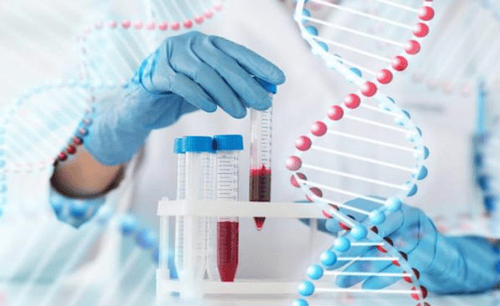
Gene testing and genetic counseling: Gene testing is the only way to determine if a person's breast cancer is hereditary. The National Association of Breast Surgeons (USA) recommends that all breast cancer patients and their family members who test positive have genetic testing. For patients, genetic testing will be helpful in selecting appropriate targeted therapy, and in planning screening for early detection of other cancers. For family members who test positive, genetic testing will help plan follow-up for early detection, and take steps to reduce the risk of cancer. For the community, genetic testing will reduce the economic and social burden caused by breast cancer. Currently, Vinmec International General Hospital has a Breast Cancer Screening Package that helps assess the risk of hereditary breast cancer, even when there are no obvious symptoms.
Breast cancer screening package at Vinmec for the following subjects:
Female customers, over 40 years old. Customers wishing to be able to screen for breast cancer Customers are at high risk of cancer – especially customers with a family history of breast cancer. Women of reproductive age, perimenopause and menopause. Women who are showing symptoms of breast cancer such as: pain in the breast, lump in the breast, etc. If there is a need, please contact Vinmec hospitals nationwide.
Please dial HOTLINE for more information or register for an appointment HERE. Download MyVinmec app to make appointments faster and to manage your bookings easily.
References: cancer.org





